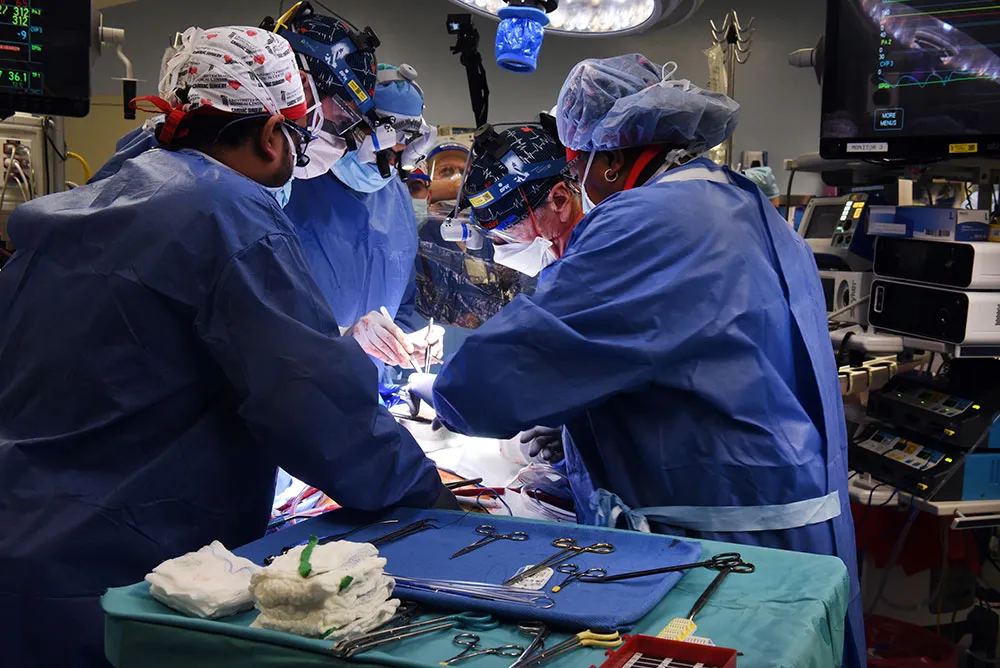A 57-year-old patient who was living with a terminal heart disease now seems to be doing well after a first-of its-kind surgery, receiving a transplanted genetically-modified pig heart in Maryland.
This was the only available option for the patient and is the first transplant to prove that a genetically-modified animal heart can function like a human one, without rejection from the body.
Now patient David Bennett is being carefully monitored over the next days and weeks, determining whether this transplant can keep him alive. Previously, he was deemed ineligible for a conventional heart from multiple transplant centres that looked through his medical records.
“It was either die or do this transplant. I want to live. I know it’s a shot in the dark, but it’s my last choice," said Bennett. “I look forward to getting out of bed after I recover.”
This kind of surgery would not normally be granted and required special circumstances to get approved. The US Food and Drug Administration had to grant emergency authorisation for the surgery.

This came under the compassionate use provision which is used when an experimental medical product is the only option for a terminal patient. While the transplant of a pig heart is obviously controversial, the surgery had authorisation and went ahead on New Year’s Eve.
“This was a breakthrough surgery and brings us one step closer to solving the organ shortage crisis. There are simply not enough donor human hearts available to meet the long list of potential recipients,” said Bartley P Griffith who surgically transplanted the heart.
“We are proceeding cautiously, but we are also optimistic that this first-in-the-world surgery will provide an important new option for patients in the future.”
Xenotransplantation, the process of transplanting animal organs, could potentially save thousands of lives but they aren’t without risks. They can trigger an immune response which can result in an immediate rejection of the organ.
This kind of surgery was first tried back in the 1980s but was mostly abandoned after a well-known case. A xenotransplantation was attempted on Stephanie Fae Beauclair, an infant with a fatal heart condition but her immune system rejected the heart within a month. While heart transplants are more controversial, pig heart valves have been successfully used for replacements in humans for years.
The modified heart used in this transplant was provided by a regenerative medicine company called Revivicor. On the morning of the transplant, the surgical team from the University of Maryland Medical centre placed the replacement heart into a perfusion device to keep the heart preserved.
For the genetically-modified heart, three genes that were responsible for rapid antibody-mediated rejection of pig organs in humans were knocked out in the donor pig. Six human genes responsible for immune acceptance of the pig heart were then inserted into the genome. Finally, one gene in the pig was removed to prevent excessive growth of the heart tissue.
“This is truly a historic, monumental step forward.While we have long been at the forefront of research driving progress toward the promise of xenotransplantation as a viable solution to the organ crisis, many believed this breakthrough would be well into the future,”said Bert W O’Malley, President and CEO of the University of Maryland Medical Center.“
“I couldn’t be more proud to say the future is now. Our skilled team of UMMC and UMSOM physician-scientists will continue to advance and adapt medical discovery for patient care that could offer a lifeline for more patients in dire need.”
Read more:
